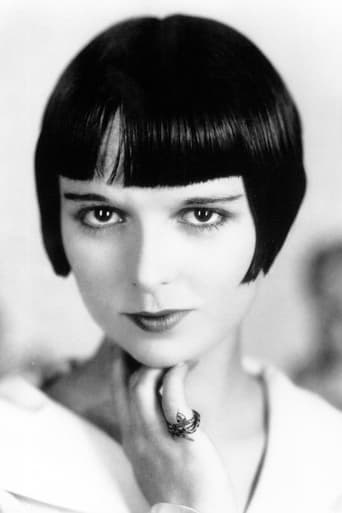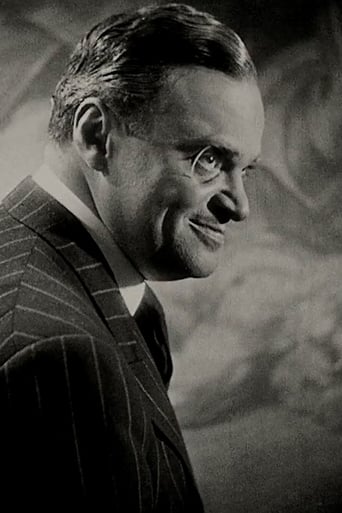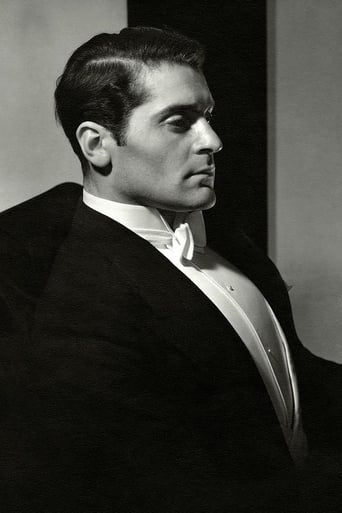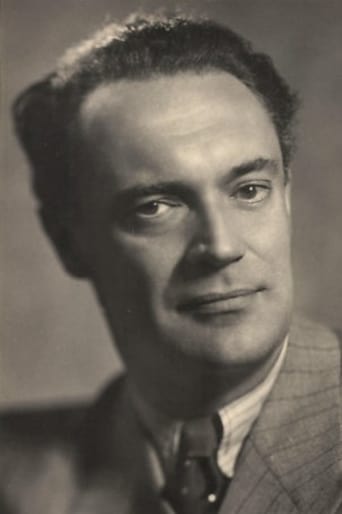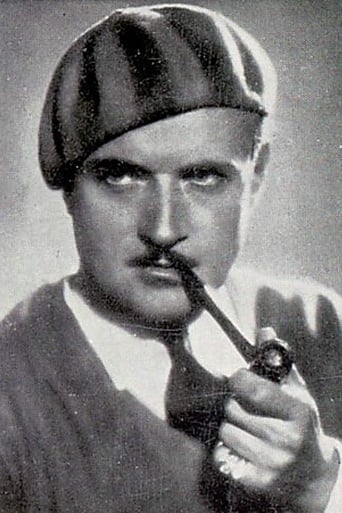Kirandeep Yoder
The joyful confection is coated in a sparkly gloss, bright enough to gleam from the darkest, most cynical corners.
Zlatica
One of the worst ways to make a cult movie is to set out to make a cult movie.
Gary
The movie's not perfect, but it sticks the landing of its message. It was engaging - thrilling at times - and I personally thought it was a great time.
Jackson Booth-Millard
I found this German made silent film listed in the 1001 Movies You Must See Before You Die book, the title didn't suggest anything to me automatically, apart from possibly the famous mythological story being involved, but I watched out of curiosity. Basically in Weimar, Germany, Lulu (Louise Brooks) is a beautiful dancer and prostitute, and also the mistress of well respected newspaper publisher and owner Dr. Ludwig Schön (Fritz Kortner), she lives in an apartment that he pays for, she lives off the money of other men who she seduces with her both enchanting and her innocent spell. One day she is happy to have a visit from old patron and her former "protector" Schigolch (Carl Goetz), with him has brought agent Rodrigo Quast (Krafft-Raschig) who is offering her an opportunity and inviting her to dance in a play. When Dr. Schön tells Lulu he is going to get married to aristocratic Charlotte Marie Adelaide v. Zarnikow (Daisy D'Ora), she uses whatever techniques she can to force him into marrying her instead. On the day of their wedding however, in the bedroom the groom finds his bride partying with Schigolch and Rodrigo Quast, and in anger he gets his gun out, but it is her that he forces to pull the trigger and shoot him, following this she is arrested. Six months pass and Lulu faces the courtroom, and despite the help of Alwa Schön (Francis Lederer), the doctor's son, and his friend Countess Anna Geschwitz (Alice Roberts), she is sentenced to five years in prison as not all the facts of the crime are sure, but she escapes with Alwa when her friends cause a havoc. They decide to travel together to Paris, but they actually end up in a squalid part of London, it is on a Christmas Eve that Lulu meets her fate when there is a prostitution situation, killer Jack the Ripper (Gustav Diessl) is her client it ends with her murdered, while Alwa disappears to join to Salvation Army. American Brooks became a cinematic icon following this film playing the Femme Fatale, and rightly so, with no sound this film relies entirely on the expressionistic imagery and an atmospheric story of false love, sexuality and occasional violence, it certainly has a good amount of tension and intrigue to keep you watching, a most worthwhile silent drama. Very good!
dlee2012
Pandora's Box has become something of a legendary film amongst connoisseurs and its reputation stems largely from Louise Brooks' performance as the ubiquitous Lulu. It is for this reason that the film's mythological status is justified: Brooks gives the first modern performance on celluloid, moving from the melodramatic acting style of her silent film predecessors towards something much more naturalistic.As others have noted, the film itself is a simple melodrama, based on Frank Wedekind's Lulu plays. Although he wrote these during the Fin de Siecle period, it is tempting to read Pandora's Box as reflective of the increasing moral decay of the Weimar Republic. The film starts with a light tone and grows increasingly dark as Lulu's predicament worsens. (For many audience members, who would have lost vast sums in the stock market crash and subsequent Depression, Lulu's descent into poverty must have been harrowing viewing as well.) The cinematography is beautiful and, as other reviewers have noted, the final scenes are lit in a proto-noir style.The film's pacing is good, apart from the tedious seventh act, when a lot of momentum is lost. Fortunately, the pace picks up again in the gripping final act.Lulu's destructive effect on the men around her could be read as reflective of the new role of women in Weimar society. With the loss of so many males in the war, females suddenly had unprecedented power in the social and political spheres, far removed from the "Mothers of the Nation" role they had held in traditional German society. How much of this anxiety about the roles of women existed prior to the war, when the Lulu plays were first written remains a question of interest.The ending, in which the destroyer of men is herself annihilated by that ultimate destroyer of women, Jack the Ripper, is suitably ironic and dark. Again, it is tempting to read it as prescient, given the imminent destruction of the corrupt and decadent Weimar culture at the hands of the even more morally-repugnant Nazis but perhaps it is better left as a general feeling of unease that the fledgling German nation-state (which had been established less than sixty years previously) may be in worse health than the previous independent Germanic kingdoms.Ultimately, this melodrama is worth watching for a variety of reasons, chiefly Brooks' performance and the cinematography. It does depict the increasingly dark and sordid themes that preoccupied the final years of Weimar Cinema and society but, without having seen the original plays, one wonders how much this is Pabst's input and how much was a carryover from the original pre-War texts.
Marcin Kukuczka
"She carries it like a gift she doesn't think much about, and confronts us as a naughty girl. When you meet someone like this in life, you're attracted, but you know in your gut she'll be nothing but trouble," a famous American film critic, Pauline Kael, said about the main character of this unique, very special film. Today when seeing Pabst's movie, we can add that it may constitute nothing but trouble for those who lost the essence of art and a good judge of our modern perception...Georg Wilhelm Pabst, a stylized and independent director, one of the best ones ever, a master of psycho-sexual dramas, offers us here an unbelievable atmospheric experience. He does this at multiple levels. Although there is a story, a certain prefabricated chain of events, viewers are not limited in their views to concrete framework of action but, thanks to flawless directing style, we, as viewers, are led much deeper, into feelings of characters, into their world on screen. The whole atmospheric feast is possible to achieve in PANDORA'S BOX thanks to the director's unique ability to show life, to depict the various states of mind, the various motives for actions with the climax in the final moments where motives and actions become consequences and where individual principle clashes with the social one. Isn't that the absolute success of cinema? The content, based upon the plays by Wedekind, deserves a certain amount of attention, but, when I was viewing the film, hopefully like many other of its buffs, my principal focus was drawn upon the character of Lulu and the performance by Louise Brooks - one word must be said before further analysis - magical! There has been a widespread opinion that Louise Brooks' (whose Hollywood career ended quite early as a result of her deliberate decisions) performance is one of the most genuine ones ever found on screen. Yet, at the same time, it is a performance affected by certain compromise. Dr Paolo Cherchi Usai, a curator of the film collection, said once that "Louise Brooks was way too wild in a business that was way too tame." Fortunately, however, she had one great support - Pabst himself. Under his direction, she is allowed to give the very core of herself and her talent portraying a captivating, funny, delicious, illusive, lustful, sensual, overwhelming and, beside all sympathetic femme fatal. Ms Brooks' scenes with the closeups directed onto her face, for instance near the end at the candle and mistletoe, carry powerful impressions. From the very first scenes, we get to know Lulu as a naughty girl. Yet, we seem to like her due to her distance towards the things and events she experiences. There is a combination of fun and appeal, vamp's eroticism and girl's sweetness, dynamic tension and light atmosphere. For me, the most memorable scenes were the backstage sequence where she is not "going to dance for that woman" Here, let me again quote Ms Kael who referred to these moments memorably. "For sheer erotic dynamism," Kael wrote, those backstage scenes "have never been equaled." Lulu's lover and husband to come, Dr Schon (Fritz Kortner) persuades her to perform...In the aspect of Brooks' performance, there is a certain satisfactory focus on the supporting cast. What viewers get here is the very best merit of a silent production. Eye contact, mimics, imagery, all the cast occur to feel their roles intensely like in those few masterworks of the period. First, a mention must be made of Fritz Kortner who portrays cold, dominant, strong, strict, ambitious, easily offended Dr Schon who appears to be proud and independent yet prone to female weapons... The scene he dies observed 'as if' by us and the leading character is another milestone of the film. Carl Goetz gives a sympathetic performance as Schigolch, perhaps the character we all like. A simple guy who likes Lulu, do does not take any advantage of her, who does not do any serious harm and whose most touching dream is to taste Christmas pudding one more time... Franz Lederer is convincing in the role of Alva, Schon's son, another man who loses under the spell of femme fatal. Consider his moments when he willingly and reasonably wants to leave; yet, something calls him back directly into her arms...what a magical power of these female weapons... An interesting and a very daring character in the film occurs to be Countess Geschwitz - an open indication of a lesbian character. Thanks be to Pabst for the courage to show that! Her dance with Lulu at the wedding and many other scenes are particularly well played and deserve great praise. Daring for the business too tamed... The character who represents a macho, a sort of robot unable to feel much is Rodrigo. His most unforgettable scene is his first scene and a visit he pays to Lulu's - what a try of the trapeze act! What a prospect of muscles! What a naive joy in girl's eyes! PANDORA'S BOX is a movie I consider a must see, an atmospheric masterpiece that makes unforgettable impressions. And the leading character portrayed by Ms Brooks...Wedekind described Lulu as "the personification of a primitive sexuality" but I would not hesitate to say here that Pabst and Brooks changed this 'primitive' into UNIQUE and MASTERFUL. It's a story of desire and struggle, of fun and grief, of lust and disillusion, of anything that comes out of Pandora's Box. 10/10
albertoveronese
Pandora's Box, a very descriptive and quasi-documentary movie, pulls on your emotions rather than excitement; it's about emotions and human psych... it involves your personal thoughts, feelings and ideas, your commitment for one another... we are in the early 20th century, during the silent film era, picture didn't talk... a significant portion of the movie-going audience were immigrants unable to speak or read a foreign language... it took 2000 years for Christians to build in every village a church, only a small decade for cinemas to spread throughout the cities; indeed films were the most important art form in town, because – people liked to form their own imagination and they saw it as innovative of their interest in leisure activities... but somewhere along the road we lost that charmed and concerned outlook on life. Georg Wilhelm Pabst's 1929 classic silent film 'Die Büchse der Pandora' and Louise Brooks' remarkable performance as Lulu will always be out there to reminds us this.







